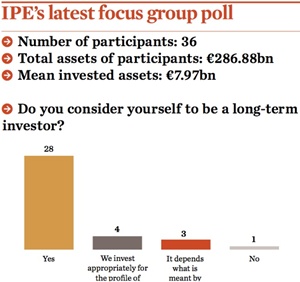Many pension funds are moving portions of asset management duties in-house in a bid to reduce costs; many more funds are pushing for more transparency from their external asset managers.
In the wake of these trends and others, a recent State Street survey claims that a new dynamic is emerging between pension funds and their asset managers.
More details on the findings of the survey, from State Street executive Rob Baillie:
Many pension funds are looking for a new type of relationship with their asset managers. In interviews conducted as part of our research, pension funds stressed how important it was to find asset managers who can understand their objectives and investment philosophy. The ability to align interests around shared goals is also key to success in these relationships. More than half of pension funds (52 per cent) find it difficult to ensure their asset managers’ interests are tightly aligned with their own. By contrast, asset managers that can build solutions around their clients’ objectives can gain an edge in a highly competitive market.
Transparency is also a key differentiator. In today’s highly regulated environment, pension funds need granular information on the issues that drive risk and performance across their investments. This is a huge challenge in the multi-asset world: almost three out of five pension funds surveyed (58 per cent) say it is a challenge to gain a complete picture of risk-adjusted performance. Asset managers that develop the analytical tools and reporting capabilities to address this need will again have a huge advantage.
[…]
In recent years, many pension funds have decided to insource some of their asset management. This was one of the strongest findings in State Street’s survey of pension funds: 81 per cent said they intended to manage more of their assets in-house.
Insourcing doesn’t remove the need for external asset management, but it does create a new dynamic in the relationship between pension funds and their service providers. They are less willing to pay a premium for straightforward investment strategies that they can easily support in-house. What they value, however, is asset managers that are able to deliver strong and reliable returns through a tailor-made investment solution.
Read more on the survey results here.
Photo jjMustang_79 via Flickr CC License



